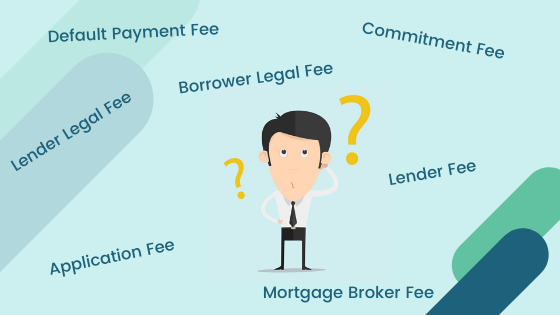|
Home equity loans allow homeowners in Metro Vancouver and the Lower Mainland access funds for any reason, quickly and easily. In fact, it is a fast and simple way to access a large sum of cash to help with: * Consolidating Your Debts * Paying outstanding property / income taxes * Home Renovations * Business Capital * Unexpected Expenses A home equity loan is a loan secured against your property, behind your first mortgage. It represents an additional loan which is usually smaller than your first mortgage and based on your available equity. A home equity loan will permit you to borrow against the property’s value, less any mortgage owing on the property. The equity in your property is the difference between the current property value less the balance of your first mortgage. Of the available equity, only a certain percentage may be utilized for an equity loan. In most urban areas, you may obtain an equity loan up to potentially 75% of the value of the property. Since many home equity loans are offered by Private or a B-Type of Lender, there will be costs to the borrower for getting the loan. Unlike the banks who typically absorb many of the mortgage setup costs for the customer, the private lender industry does not. There are far more costs associated with a home equity loan passed on to the borrower, however this also means that you can access funds quickly and easily. The typical costs you may anticipate with your home equity loan are as follows:
Appraisal Fee: This is the cost of having your home evaluated by a certified property appraiser. The lender needs to know the current market value of your home. It is the duty of the mortgage broker to order the report, and that cost is the responsibility of the borrower. Once the appraisal is ordered, the firm will reach out to the borrower and arrange for an appointment and payment. The appraisal is usually the one up front expense to the borrower. The appraisal may take up to a week to complete or sooner, in most cases. Once complete and the payment has cleared, the finished report is released to the lender for review. An average home appraisal costs around CAD $275-$450 + tax in most urban areas like Vancouver, Surrey, Burnaby, and the tri-cities. The fee is determined by the property type such as strata, rental, single family, high-end home… Lender Fee: In some cases, the lender may charge a lender fee in addition to the interest on the loan. The lender fee is used to offset any administrative costs of the lender. The lender fee may be used by the lender to compensate the mortgage broker for the loan application. The lender fee may also be used to gross up the lenders yield on the loan investment. In other words, the lender may offer a very low rate to the borrower, then charge a lender fee to make up for his desired return on investment. When a lender fee is warranted, it is negotiated upfront and disclosed to the borrower. The lender fee is added, or “grossed up” onto the desired net loan amount for the borrower. The lender fee is deducted from the total gross loan at funding and submitted to the lender. Mortgage Broker Fee: When a lender does not compensate the mortgage broker, the broker will then charge a fee for the work they put into the file. This fee represents payment for all of the time, efforts and legwork of the broker. From start to finish, the broker processes the application, hunts for the perfect lender and streamlines the entire process for the borrower, up to funding. The mortgage broker negotiates on the borrower’s behalf with the lender, coordinates the loan documents between lawyers and maintains government compliance as a licensed mortgage broker. When a broker fee is warranted, it is negotiated upfront and disclosed to the borrower. The mortgage broker fee is added, or “grossed up” onto the desired net loan amount for the borrower. It is eventually deducted from the total gross loan at funding and submitted to the mortgage broker. Lender Legal Fee: The borrower is also responsible for the costs associated with preparing the mortgage documents. The lender’s lawyer will prepare and legally execute the mortgage papers, at the cost of the borrower. The lawyer fees are passed on to the borrower are also deducted from the gross loan. These fees are disclosed up front to the borrower for review along with the other loan costs. The average lender legal fee can range from CAD $750 - $2,000+, although these figures are approximate. The nature of the loan and subject property will determine the true lender legal cost. Borrower Legal Fee: The borrower will need a legal representative to review the loan papers and give their opinion and independent legal advice about entering into the loan agreement. Therefore, the services of a lawyer or notary are required, another cost to the borrower. It is important to have a professional to protect your best interests. The average lender legal fee can range from CAD $250 - $450+, approximately. Application Fee: There are a few private mortgage companies who will charge an application fee as one of the loan set-up costs. The application fee may cost CAD $200-$300 and is meant to offset any administrative expenses of the lender. These costs would include requesting documents from the land titles office, reviewing application details, processing and preparing approval papers. The application fee is disclosed to the borrower up front, and is added to the net loan, such as the lender and mortgage broker fees. Commitment Fee: Many private lenders will also ask for an upfront setup or commitment fee from the borrower. Once the loan offer is disclosed to the borrower and they are happy with the terms, an up-front commitment fee is usually asked for from the borrower. The lender will want to ensure the borrower is committed to moving ahead with the loan. The commitment fee will be applied towards the preparation of loan papers by the lenders lawyer. This amount will be credited towards the total lender legal fees, which the borrower is responsible for. The average commitment fee can range from CAD $500 - $2,000+ approximately. The nature of the loan and subject property will determine the true lender legal cost. Default Payment Fee: In the event the borrower misses a mortgage payment, there will be an NSF administrative penalty cost. The missed payment fee is noted in the mortgage documentation. Cancellation of Home Insurance Policy Fee: If the borrower cancels the home insurance policy on the subject property, the private lender may charge a fee to ensure the insurance is reinstated. The cancellation of home insurance fee is noted in the mortgage documentation. Mortgage Discharge Fee: This is the small cost the borrower pays when the mortgage is paid out and discharged off of the title. This fee is paid to the Land Titles Office so they remove the loan off of your property title. In some cases, there may be a small fee charged by the lenders lawyer for processing the mortgage discharge. Renewal Fee: Many private lenders will charge a renewal fee when the mortgage comes up for maturity. This fee covers any administrative costs in processing the renewal. The renewal fees can range from a set fixed dollar amount or a certain percentage of the outstanding balance at the time of maturity. The percentage range can be anywhere from .50% - 2.25% of the outstanding balance at maturity. The renewal terms will be disclosed and note in the loan paperwork. Please note that the above represents some of the fees and costs which apply to home equity loans & private mortgages. It’s important to ensure you have full disclosure and understanding of the costs associated with your loan. These are the reasons the services of an experienced mortgage broker should be used. They will walk you through the entire loan process safeguarding your best financial interests. Have any more questions? Feel free to get in touch here. |
Silver Hill BlogJim Horvath is the principal broker and director of Silver Hill Mortgage Corp., arranging private mortgage loans in British Columbia for over 25 years. Archives
May 2024
Categories |
|
Silver Hill Mortgage Corp. Head Office
2902 West Broadway | Suite #302 Vancouver, BC, Canada V6K 2G8 E: info@yourequityloan.ca P: 604.620.2697 F: 855.299.5832 (Toll Free) |
Stay in Touch |
About UsSilver Hill Mortgage Corp. is a trusted industry leader in delivering home equity loans and other private mortgage financing solutions for homeowners and bank declined customers in British Columbia. Get in touch to get approved today.
Copyright © 2024 Silver Hill Mortgage Corp. All rights reserved. |
Proudly serving our BC communities:
Vancouver Private Mortgage | Surrey Private Mortgage | Burnaby Private Mortgage | Richmond Private Mortgage | Abbotsford Private Mortgage | Kelowna Private Mortgage | Nanaimo Private Mortgage | Victoria Private Mortgage | White Rock Private Mortgage | Coquitlam Private Mortgage | Langley Private Mortgage
Vancouver Private Mortgage | Surrey Private Mortgage | Burnaby Private Mortgage | Richmond Private Mortgage | Abbotsford Private Mortgage | Kelowna Private Mortgage | Nanaimo Private Mortgage | Victoria Private Mortgage | White Rock Private Mortgage | Coquitlam Private Mortgage | Langley Private Mortgage



 RSS Feed
RSS Feed
